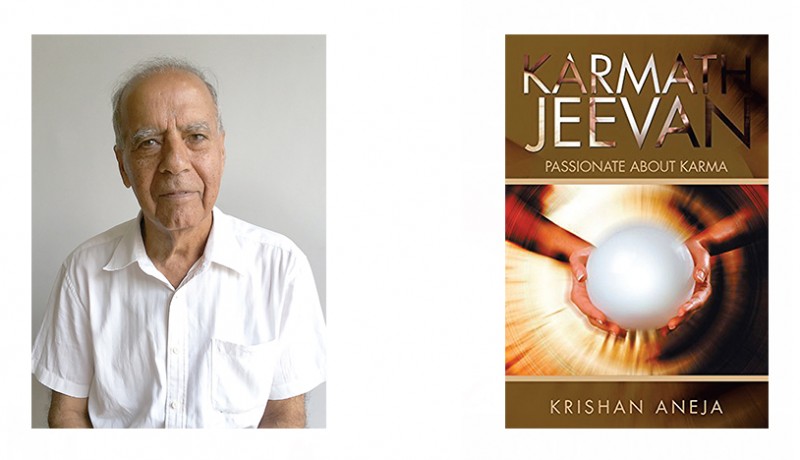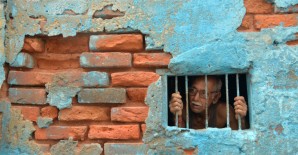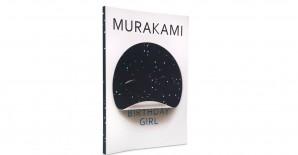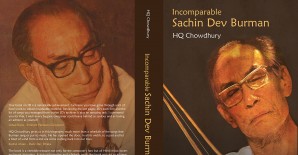
Etcetera

It is rare for a layman to think of writing his autobiography, that too in the silver years. But this is exactly what Dehradun-based householder Krishan Aneja has done. At 80, he has written his life story running into nearly 400 pages under the somewhat unusual title, Karmath Jeevan. According to Aneja’s own admission, all his life he has written nothing but audit objections and notes, and has no pretensions of being a writer.
Aneja and his family arrived in India as refugees from West Punjab after four days of perilous train journey in September 1947. He was 11 then. When his father passed away, it was left to his unlettered mother to shoulder the responsibility of taking care of a large family comprising four sons and three daughters. The family spent a few months in refugee camps in India where Aneja did his initial schooling. Though he began his working life humbly as a junior clerk, Aneja rose step by step in his career, shifting from one company to another, and finally retiring in 1994 as general manager in the finance and accounts department of India’s oil behemoth Oil & Natural Gas Corporation Ltd (ONGC). While working, he completed his graduation as a private student.
Aneja’s story is one of sheer determination and willpower. In an interaction with Raj Kanwar—who himself stepped this month into his 87th year—Aneja discusses why he wrote his autobiography at 80.
What made you to write your memoirs so late in life?
First, I believe it is never too late in life to do anything that fascinates an individual and becomes an obsession. And second, an overpowering urge is in itself a great motivating force that pushes an individual to embark upon a challenging venture. My life journey apparently may not seem so interesting and eventful; yet there are many takeaways for the inquisitive and the receptive. Also, I became determined to leave in writing for the Aneja clan a rich legacy of which I am sure my children, grandchildren and great grandchildren will be proud.
What did you wish to achieve by writing your autobiography?
I believed a great satisfaction would be mine if I pour out truthfully what I lived through happily in my long journey of over eight decades on this planet. Another reason was my desire to bare myself for the benefit of my coming generations.
How did you decide on the unusual title Karmath Jeevan?
Frankly speaking, it occurred to me that my life journey was modeled on ‘Karmath’ as enshrined in the Bhagavad Gita. For a few years, I used to regularly visit Kali Bari temple in Dehradun and listen to several learned scholars on the Gita and imbibed much of its philosophy. After much discussion and lot of churning, Karmath Jeevan was chosen as the title.
What gave you the confidence to successfully undertake such a massive writing project when all your working life you had written nothing except audit notes and objections?
I have no pretensions of being a writer, leave alone author. Thus embarking upon such a massive writing project appeared to be a Herculean task. Yet, my confidence in my own capability and ingenuity to do justice to it was unbounded.
The book has so many minute details about your past colleagues and their idiosyncrasies. Did you keep diaries or notebooks?
I had no diaries or notebooks to refer to. I’m glad I could recall what had transpired at different stages in my working life and could put it on paper.
Did you plan a broad outline of the book in advance?
No, I didn’t. However, I did scan the autobiographies of some celebrities and searched on Google for ideas and inputs for structuring, etc, and the dos and don’ts. Still, I was nowhere near finding answers until Sandeep, my older son, presented me a book and told me, “Dad, please read it. It may help you come out of your dilemma.” He was right! The book, Zig: The Autobiography by Ziglar, was the autobiography of eminent American author and motivational speaker Hilary Hinton ‘Zig’ Ziglar, and it gave me insight on formatting.
How old were you when you started writing? And, what was your everyday writing schedule?
I was about 75 when I started writing.I had no idea about the size of the book and the time it was going to take. I used to spend about three hours daily, in the afternoons and evenings, writing.
From a junior clerk you rose to a top position in ONGC. How did you plan your career?
My elders’ decision to send me to a school in the refugee camp in Kurukshetra in 1948 turned out to be visionary. That motivated me to continue with my education as a private student while in service. After graduation, I searched for a job with better growth opportunities and joined the Audit and Accounts Department, Punjab, Shimla [Shimla was part of Punjab at the time; Himachal Pradesh was yet to be formed], as an auditor in November 1959. In due course, I joined Bharat Heavy Electricals Ltd, Haridwar, and Bokaro Steel Ltd in higher positions. In 1982, I joined ONGC, Dehradun, as a joint director in their finance department and eventually superannuated from there in 1994 as general manager. That, in a nutshell, is my career graph.
Did you at any stage during your four-year writing marathon feel like giving it all up?
At no stage did it occur to me to give it up. Recalling various episodes of my journey stimulated me, and I enjoyed being happily busy!
About your wife Krishna, you write, “…beautiful companion-in-arms in thick and thin of life, a crusader imbued with a unique sense of courage and dashing spirit who sprinkled love in abundance all around in the family.”
What I wrote about Krishna is no exaggeration. She stood by me shoulder to shoulder while creating her own world of dreams. She is an excellent homemaker and has taken great care of all of us. Her life story is much more poignant than mine. God willing, I shall endeavor to take it up soon.
Tell us about your family.
Krishna and I have three children: Sunita, Sandeep and Asish. Sim and Jyoti are our daughters-in-law and Aarushi, Anushri, Shardul, Arihant and Munn are the grandchildren. To me, being sensitive to each other’s susceptibilities, though geographically far away, is a sure sign of mutual love and respect.
Featured in Harmony — Celebrate Age Magazine October 2016
you may also like to read
-
Cracking the longevity code
Small yet impactful choices can be game-changers, writes Srirekha Pillai At 102, there’s no stopping Chandigarh-based Man Kaur, the world’s….
-
Home, not alone
While a regulatory framework is vital for senior-care facilities, the need of the hour is to develop an ecosystem to….
-
Birthday Girl
Published in a special edition to honour Japanese master storyteller Haruki Murakami’s 70th birthday, Birthday Girl (Penguin; Rs 100; 42….
-
A huge treat for music lovers
Published as the revised and updated second edition, Incomparable Sachin Dev Burman (Blue Pencil; Rs. 599; 470 pages) the authoritative….







